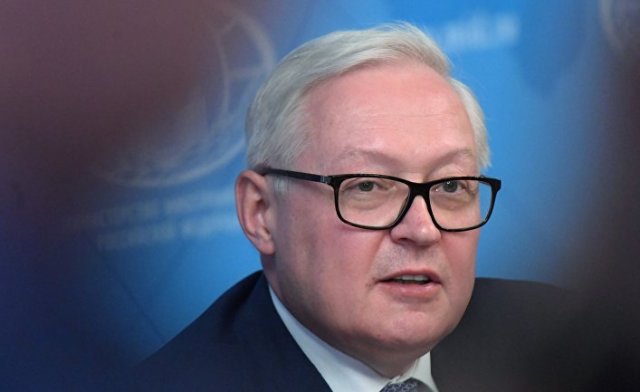Moscow. September 9. INTERFAX-The US position on the need to include non-strategic nuclear weapons in future agreements with Russia is unacceptable, Russian Deputy Foreign Minister Sergei Ryabkov said on Thursday.
"As for " all warheads", we believe that despite the importance of the subject of warheads as such, priority attention should still be given to delivery vehicles, that is, carriers. The position on non-strategic nuclear weapons in the form in which it is promoted by the Americans is unacceptable for us. We need to start with another one. And in general, the prospects for a conversation on this topic are more than vague, " Ryabkov said in an interview with Kommersant.
This is how he commented on recent statements by Deputy Secretary of State for Arms Control and International Security Bonnie Jenkins, who, in particular, said that it is necessary to include all nuclear warheads, including non-strategic nuclear weapons, in future agreements.
Speaking about the possible number and mandate of working groups that can be created within the framework of the Russian-American dialogue on strategic stability, the deputy minister noted that there is no such agreement yet, and "this is a rather complex issue." "Its complexity is that, as it was said in the famous cartoon, "as you call a ship, so it will sail". In this case, the pace of progress and the chances of achieving the desired result will largely depend on the thematic coverage of the working groups," the diplomat explained.
According to him, "the Americans are also well aware of this and pay significant attention to this aspect." "I don't think that we will be able to announce anything in this regard before holding a face-to-face meeting in the last days of September, although, probably, we should strive for this. But one issue leads to others, " Ryabkov stressed.
Speaking about the nature of possible future agreements with the Americans, the deputy minister noted that in the understanding of the Russian side, we can talk about " the development of a legally binding document, perhaps not one, but several texts." "Both legally and politically binding, if such an option is considered more preferable by both sides," he explained.
The diplomat noted that Moscow " takes seriously the American signals that there may be and, most likely, there will be problems with the ratification of a hypothetical new treaty." "And such ratification will be required, since this hypothetical treaty will deal with issues of arms control and national security of the United States, and, of course, ours, too," he said.
Ryabkov stressed: "Ideally, we would, of course, want to put all our agreements with the United States in the most binding - that is, legally binding - form."

